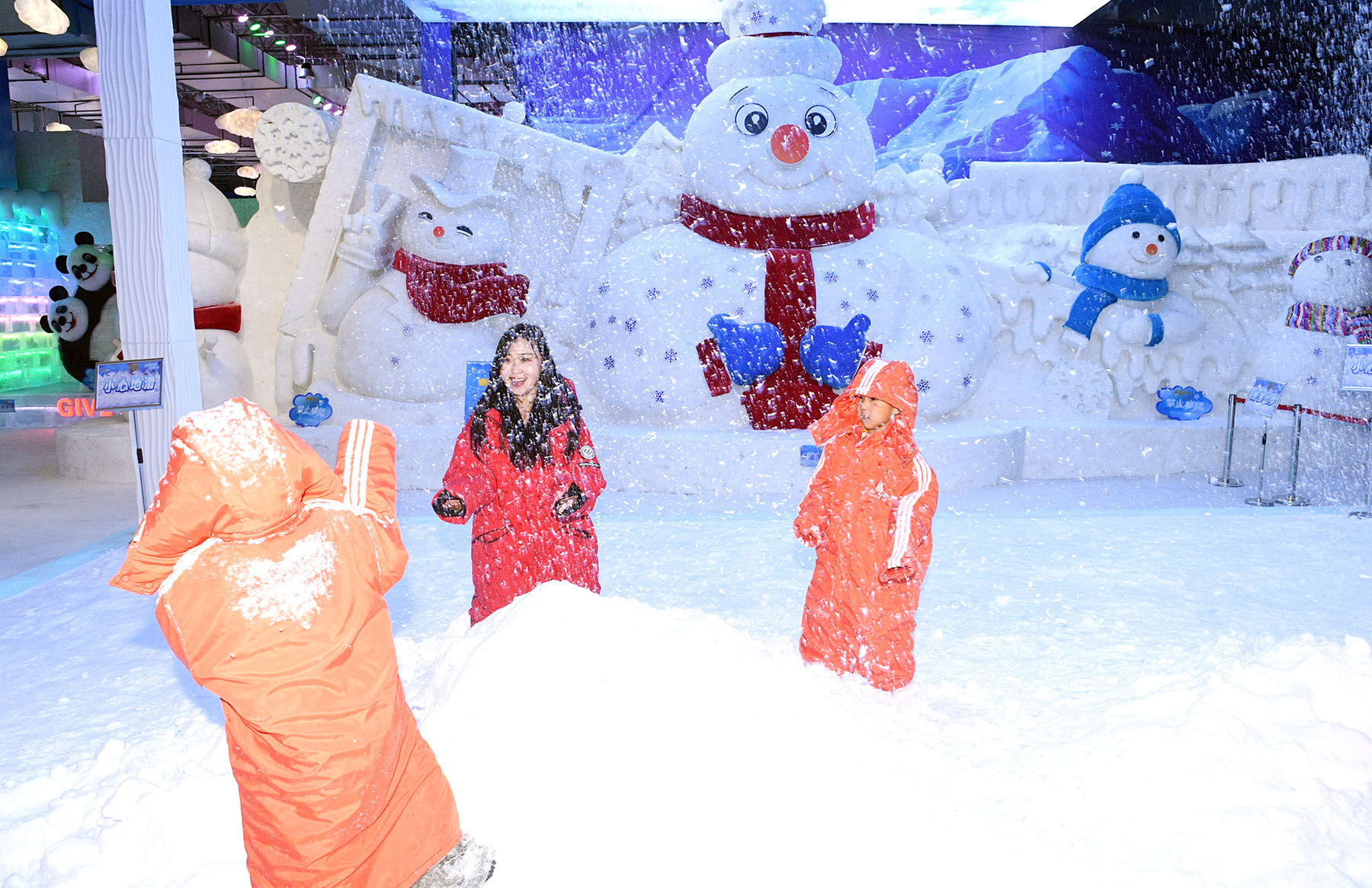Skiing, fishing, surfing among activities offered away from sun

The popularity of indoor activities such as indoor skiing, surfing, fishing, rock climbing and nighttime museum visits is on the rise, as holidaymakers escape from the intense heat across the country this summer.
In particular, the off-season experience of going skiing in summer, with the air conditioning blazing away, has been a big hit for those living in the southern part of the country, as the scorching temperatures continue outside and many locals have never seen snow before.
Since July, booking volumes at indoor skiing venues and ice and snow parks nationwide have doubled year-on-year, according to Qunar, a Beijing-based online travel agency.
READ MORE: Domestic tourism jumps as people flee hot summer
"Compared with the north, indoor ski resorts have been more popular in the south. Since July, eight out of the 10 most popular domestic ice and snow worlds have been located in southern Chinese cities," said Zhang Zhongyin, a Qunar researcher.
Specifically, booking volumes at Sunac Snow Park in Guangzhou, Guangdong province since July have jumped fourfold year-on-year. And the popularity of Taicang Alps Resort — a recreational area in Suzhou, Jiangsu province that includes a ski slope, a resort and shopping streets — has driven reservations at nearby hotels by 40 percent on a yearly basis, Qunar said.
In addition to skiing, more indoor businesses have emerged for typically outdoor activities such as sea fishing and surfing, as consumers seek to beat the heat, test their angling acumen or hang ten.
Zhang Xiaojie, a five-year-old boy, recently checked out an indoor seaside pavilion in Beijing, where he can fish just like at the seaside.
"The familiar smell of the sea comes to my face. My feet are on the special sand, and I can search for different marine creatures such as starfish, hermit crabs and shells," Zhang said.
His parents said they planned to bring Zhang to the seaside, but due to extremely hot weather, they chose an indoor venue instead, and their son was thrilled by the experience.
In July, the searching volumes of indoor activities such as indoor seaside pavilions and indoor surfing nationwide surged tenfold over June, Qunar found.
Meanwhile, the night economy has continued to heat up this summer with cooler temperatures occurring after sundown. Major scenic spots, theme parks, museums and zoos have extended their opening hours or launched special night tours — such as light shows and night performances — to attract more visitors.
Hong Yong, an associate research fellow at the Chinese Academy of International Trade and Economic Cooperation, said the most active period for nighttime consumption is typically summertime, as people are more willing to go out for activities and consumption with suitable weather and longer daylight hours.
"Some innovative business models such as nighttime cultural and creative markets, and 24-hour cultural and leisure spaces, can be further developed to stimulate consumption potential," Hong said.
Museums have also started to embrace the darkness. For example, the National Natural History Museum of China in Beijing has extended its opening hours until 9 pm from mid-July to Aug 15. After dark, the museum fashions the facade of the building into a jumbo-sized screen and puts on a riveting light performance through 3D projections, with the show interpreting 4.6 billion years of the history of the Earth.
ALSO READ: Steps to spur consumption, enhance vitality
The museum has also introduced different night sessions and events that allow museumgoers to stay overnight at exhibition halls in tents, with children able to enjoy in-depth learning experiences.
The "Night at the Museum" program has been a result of integration between cultural value and the upgrading of the cultural tourism sector, Zhang of Qunar said.
"With the application of artificial intelligence and light technologies, static cultural knowledge has been transformed into immersive products, providing tourists with a more in-depth experience and driving the upgrading of cultural and tourism consumption," Zhang said.
Contact the writer at zhuwenqian@chinadaily.com.cn


